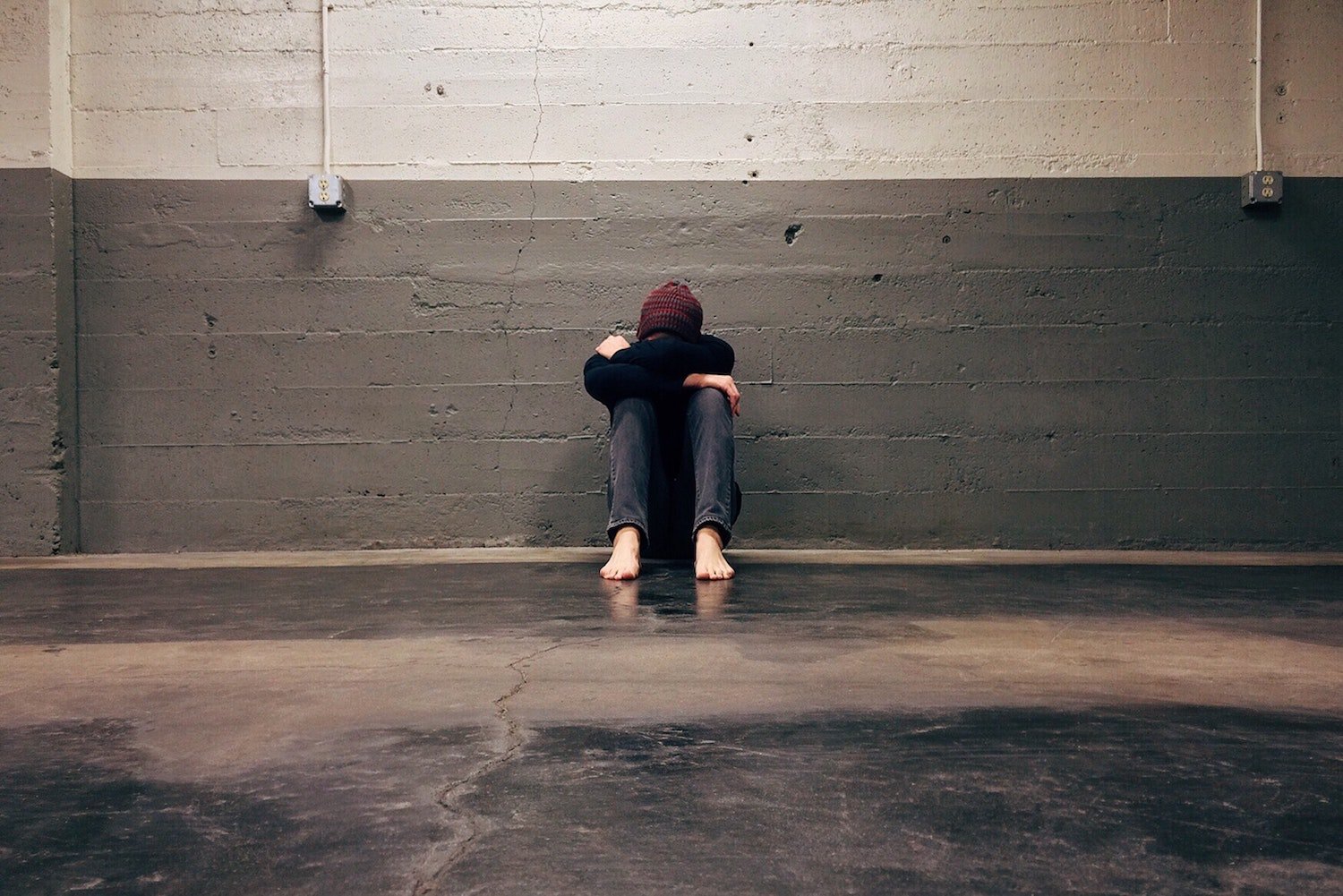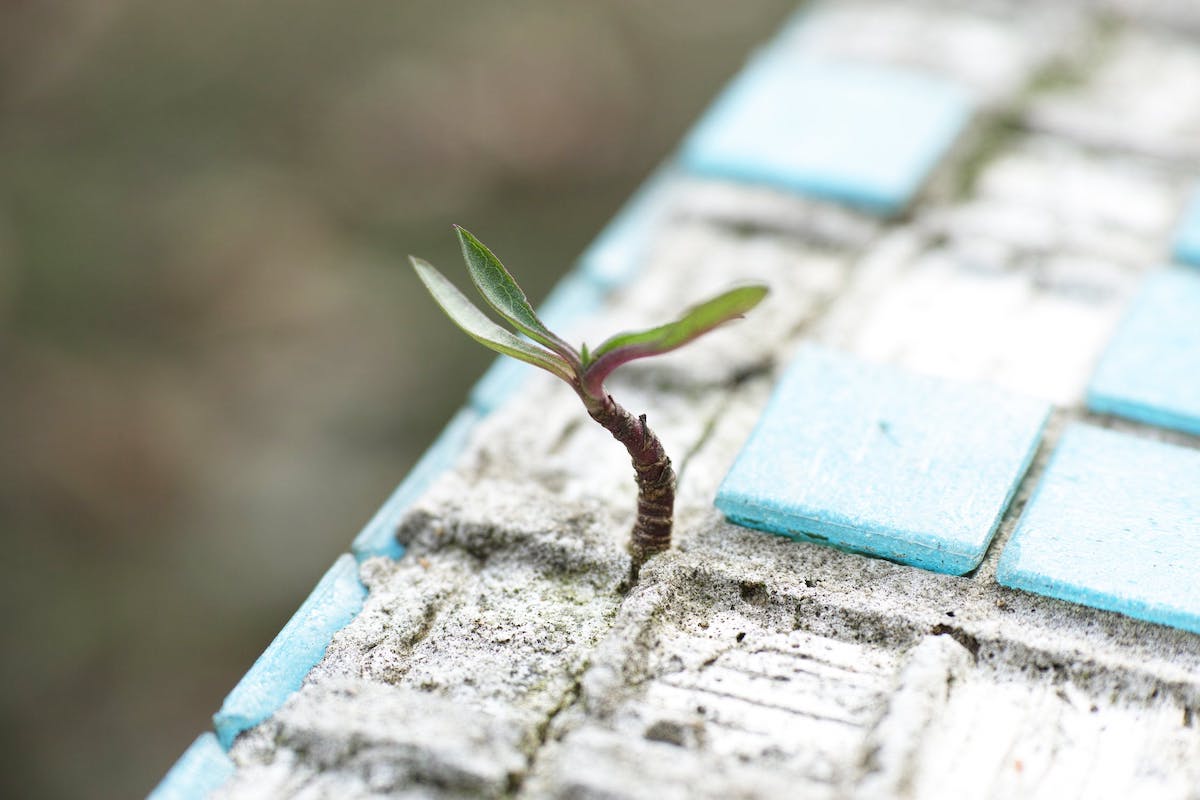Here are 3 tried and tested steps you can take to finding the right therapist for you. Welcome to the beginning of your healing journey!
We know finding the right therapist can be quite a process, let alone the challenges of overcoming the anxiety and stigma around seeking mental healthcare in our region. (You got this!)
You're asking the right questions and we're here to guide you through the process with details on where to look and what to look for along with some suggestions and advice!
Article Content:
- Do Your Research
- Try Online Therapy
- Ask Questions That Matter To You
- Final Notes
1. Do Your Research:
- Look for Therapists
When we find a good restaurant or store, we post about it, talk about it and announce it to the world. But that's not how it works with therapy. It's something private that people don't talk about, so you have to do your research.
When searching for a therapist online, be specific. Don't search for "Therapists in Riyadh", instead look up "Therapist specialized in social anxiety in Al Khozama, Riyadh" and take it from there.
- Think About Your Goals
Think about what you want to accomplish in therapy. If you know or suspect what your challenges are, it can be easier to look for a therapist with that specialty.
If you read that cognitive-behavioral therapy (CBT) works for someone like you, you could then look for a therapist specialized in that.
Look up therapy treatment methods, which are also referred to as treatment techniques and orientations, and learn more about what resonates the most with you.
Examples of treatment techniques include:
- Experiential therapy
- Dialectical therapy
- Coaching
- Gestalt therapy
and much more!
2. Try Online Therapy:
A licensed platform like Ayadi is a reliable resource that can help you find a roster of qualified therapists and psychologists that speak both English and Arabic. You can browse their specializations and treatment methods.
At Ayadi we promise to provide you with confidential, high-quality, and affordable mental healthcare at the comfort of your home.
Speak to our client care guides that will match you with a licensed therapist that suits your needs.
Some people find digital therapy more convenient, try it, and it might be just right for you too.
3. Ask Questions That Matter To You:
Keep in mind that you won't really know if your selected psychologist is right for you unless you actually talk to them. And even then, it could take a handful of sessions to really know if you've found the one for you.
Don't let that discourage you. Thinking about what you're looking for in a therapist to help you narrow down your selection.
Here are some questions you might want to ask and think about once you meet your therapist:
- What is their specialty?
- Have they worked with people with similar challenges?
- Have they ever been in therapy themselves?
- Do they have the same cultural background as you?
- Are they fluent in your preferred language?
- Do they interrupt you or listen carefully to what you're saying?
- Do you feel tense and worried about their judgment while talking to them?
- Do they bring up religion? If so, how does it make you feel?
- Do they brush off or invalidate your concerns?
- Do you feel heard, seen, respected during the session?
Final Notes
As you look for a therapist and start your sessions, it's important to remember that when you start meeting with a therapist, communicate your goals for your sessions and what you hope to achieve with them.
Communication and connection are at the heart of effective therapy, and you can build that sense of connection whether you meet your therapist in person, on the phone, or online.
Don't hesitate to ask us any questions you might have at customercare@ayadihealth.co until you find the right one for you.
Remember that the therapy should be about you. The goal is to help you and improve your mental health.
Good luck!
Photo created by wayhomestudio
There are two types of this disorder: bipolar I and bipolar II. The difference between the two is that while bipolar I involves full manic episodes, bipolar II may only include less severe, ‘hypomanic’ episodes. Both experience depression.
Energy is the fundamental feature of bipolar disorder. “When I think of bipolar disorder, I think of it as an illness that involves energy,” says Melvin G. McInnis, MD, Director of the Heinz C. Prechter Bipolar Research Program and Professor of Psychiatry at the University of Michigan. “Individuals with bipolar disorder have energy levels that are going up and down all the time, and sometimes it reaches the point of being an episode of mania, or alternatively, an episode of depression."
Why Routines are Important for Managing Bipolar
One of the main characteristics of bipolar disorder is its tendency to cause impulsivity. This means that during COVID-19, people with bipolar are more likely to behave in ways that could put them at greater risk of contracting or spreading the virus. Severe bipolar episodes can sometimes lead to trips to the emergency room or other places that compromise safety protocol. Bipolar disorder can also cause distraction (including from taking prescribed medication), which is why it’s more important than ever to create and maintain regular routines.
Needless to say, stay-at-home orders have resulted in significant changes to normal daily life. And while these disruptions – along with new potentials for isolation, relationship conflicts and getting stuck inside our heads – are challenging to anyone, they are even more so for those with bipolar. That’s because maintaining a cadence of normalcy is hugely beneficial for living with this disorder.
So how can people manage their bipolar during this pandemic? By placing the focus on creating strong, healthy routines – namely in three main areas:
Sleep and Bipolar Disorder: Reestablishing Rhythms
Sleep is fundamental, and sleeplessness is often one of the first signs of a manic episode onset. And while bipolar disorder causes irregular sleep patterns, these can also worsen its symptoms. All of this is made even more challenging by the disturbances COVID-19 causes in our lives, which interfere with the cues our bodies and brains are used to receiving for sleep.
Schedule changes like working, attending classes and socializing at different times (or perhaps not at all) throw off our body clocks and get in the way of reestablishing circadian rhythms. And that has a serious impact on mood. These challenges can be addressed by:
- Waking up around the same time every day.
- Avoiding napping during the day, especially in the evening.
- Staying away from bright lights, especially blue light, in the evening – use a red light filter for your devices.
- Avoiding screen time for one hour before bed – try journaling or winding down with a good book instead.
- Aiming to get 30 minutes of cardio per day. This has the double benefit of boosting endorphins (feel-good chemicals in your brain) and helping you sleep more restfully at night.
Try to go to sleep and wake up at the same times every day. Plan waking and sleeping times as close to your natural rhythms as possible to make this easier and optimize your energy throughout the day.
Daily Schedules: The Key to Staying Balanced
People with bipolar disorder have especially sensitive internal clocks that can more easily lose track of time due to environmental factors. This sets the stage for a manic or depressive episode, which is why it’s important to be vigilant about routines – particularly during periods of additional stress like COVID-19. Establishing a normal schedule is a powerful way to stabilize your body clock.
Strategies for increasing regularity in your life might include:
- Starting your day around the same time every day. This can seem daunting during this time of uncertainty when we’re sometimes not sure what to do with our days, but starting with a simple task like brushing your teeth can help you set things in motion more easily.
- Trying to spend time outside each day. If this isn’t possible, position yourself so that you’re facing a window during a decent portion of your daylight hours.
- Eating dinner at the same time every evening.
- Staying in regular contact with your therapist – keep them updated on your daily routines, and ask for advice on what to do if you’re not getting enough sleep.
- Scheduling a manageable amount of activities every day, like calling friends, working out or cooking a healthy meal.
When talking to your loved ones, try to use more immediate, face-to-face communication methods like video conferencing when possible. These offer even more social benefits, but calls and real-time texts are also rewarding.
How Substance Abuse Affects Bipolar Disorder
Substance use has increased dramatically during COVID-19 as people find themselves pushed further into isolation. People struggling with bipolar disorder are at increased risk for substance abuse, as manic episodes often drive people to reach for drugs or alcohol to calm themselves down. But it’s important to note that any mind-altering substance only serves to further destabilize mood and compound the effects of this complex mental health disorder.
COVID-19 is also expressed in heart symptoms, and many substances can lead to heart problems – all the more reason to avoid taking that route in this current environment. This includes narcotic medications taken in ways other than those prescribed by your doctor.
Bipolar Can be Managed, Even in a Pandemic
Despite the challenges COVID-19 poses to us all, it’s important to keep in mind that life in the new normal can be entirely manageable – even for those with bipolar disorder.
Bipolar sufferer Christina Stiehl says the pandemic came as a shock at first. “Before the pandemic hit, (maintaining my routine) meant getting up early, going to the gym or a fitness class, making a protein shake, getting ready, and taking the subway into the office,” she recalls. “As my schedule and daily life changed completely, it really took a toll on my mental health.”
But while she was initially anxiety-ridden and even found it difficult to even eat regularly, after the first few weeks passed, she started to find her footing and adapt to her new daily life. She credits live Zoom fitness classes, meal prep and regular walks outside with helping her take charge of her wellbeing again.
If you’re struggling with bipolar disorder and are finding it challenging to adapt to recent changes, you can find your stride again, too. Ayadi can help. We offer confidential, one-on-one counseling with professional therapists via our convenient app – download it here to connect with a bipolar-specialized therapist today.
In times of crisis, there’s room for incredible positive possibilities. Margaret Drabble sums it up beautifully: "When nothing is sure, everything is possible.”
The past few weeks have seen most of the world’s countries go into some form of a lockdown, with terms like ‘quarantine’ and ‘social distancing’ a part of our new vocabulary. Coronavirus (COVID-19) has shaken up life as we know it. Reflecting on the current global state, it’s common for feelings of overwhelm or anxiety to build.
It’s okay to feel bogged down by the uncertainty - our lives have been upended and the world is experiencing a collective shock. This is far from what we define as normal.
Article content:
- Embracing a New World
- A time to re-evaluation and reflection
- Reconnect with the essentials
- The joy of being with family
- The human side shines through
- The flip side of fear is love
- Receive compassionate, confidential support
Embracing a New World
At points in our lives deemed critical junctures, positive potentials will show themselves – and we have the power to embrace them:
A time for re-evaluation and reflection.
While we may have been charging ahead at full speed before, the universe has given us an opportunity to hit the pause button. A chance to slow down, breathe and reflect. Reflection helps you sift through the chaos and organize your thoughts.
It becomes a useful tool for learning about yourself, for forming an understanding of your values and for growing. If you’re unsure where to start, here are some steps you can take to practice reflective work. This crisis has acted as a reminder that we do need to periodically step back from our busy lives and re-evaluate what’s important to us.
Some of us might be feeling stuck as we attempt to navigate through the ongoing pandemic. If you’re finding it difficult to organize your thoughts, know that you don’t have to struggle alone. Professional therapists can offer invaluable support and guidance during these troubling times.
Reconnect with the essentials.
What do you value?
During periods of crisis, we tend to shed what’s unnecessary and rediscover the things we truly hold dear.
With our once-hectic schedules reduced, plus all the other busy things consuming our attention put to a halt, we can be more in-the-moment - and experience what it really means to be human. This might present itself in the form of hands-on hobbies, like cooking or art, or in experiencing the beauty of nature.
A study led by Mathew White of the European Centre for Environment & Human Health at the University of Exeter revealed that people who spent two hours a week in green spaces were likely to report better health and wellbeing than those who didn’t.
Reconnecting with the essentials helps us stay grounded, which in turn reduces stress and promotes healing. Think about using this time to connect back to what you love. Read books, admire greenscapes, make art, and rediscover life’s simpler pleasures.
The joy of being with family.
“I wish we spent more time together.”
How many times have we said this about our families, when life was in full swing and plans kept piling up?
Before the coronavirus pandemic, many of us missed out on countless quality time with our families - time we’ll never get back.
Parents around the world have been spending less time with their kids on average, and in one recent survey conducted by Centrepoint in the UAE, 46% of 5,043 UAE residents polled said they spent less than one hour a day of family time.
Now, with other activities put to a halt, there’s a beautiful opportunity to connect with loved ones again. To spend quality time with one another when you couldn’t before.
By spending more time together, you’ll certainly make new memories, and you’ll discover new things about each other that can strengthen your bond.
Take comfort in knowing that through all of this, we have new opportunities to connect with others on a deeper level.
The human side shines through.
We’ve seen the videos of doctors in Iran dancing to uplift patients’ spirits, or entire neighborhoods coming together to make music on their balconies in Italy. People are lending each other a helping hand. We’re seeing people holding fundraisers for their neighbors and volunteers sending daily deliveries of essential goods to at-risk groups.
Through all of this, with everybody facing difficulties, the human side is shining through.
Entire communities are coming together with empathy and compassion. Heart-warming moments are being created across the globe. The COVID-19 pandemic shows us that in times of crisis, humanity prevails.
The flip side of fear is love.
Love is a universal language – humans are deeply rooted in love, it’s a part of our nature. It’s important to remember that even though there are feelings of worry and fear right now, the flip side of that is love.
There is so much potential for all around us right now to take better care of ourselves, our families and our communities.
Receive compassionate, confidential support.
If you’re feeling stuck, anxious or afraid through all of this, know that you do not need to struggle alone. Ayadi’s fully certified therapists are here to listen with an understanding heart and full confidentiality and offer professional support to help you navigate these unprecedented times.
Download the Ayadi app to talk to the therapist of your choice today.
Many of us see the world around us as being, for the most part, stable. We find this idea of stability comforting, and losing touch with that sense of control can prompt fear, anxiety, anger, confusion, and even loss as we grieve parts of our lives that no longer exist in the way we thought they would. But in all of this discomfort lies a hidden treasure: an opportunity to grow our powers of acceptance and adaptability. When we step out of the familiar territory and embrace the unknown, a world of possibilities opens within us.
The good news is, however uncomfortable it may be, this process and the emotions that come along with it are completely normal.
Article content:
- The Unknown: A Normal Part of Life
- Ways to Work Through Uncertainty
- Feel your feelings
- Identify what you can and can't control
- Reconnect with the essentials
- Embrace the upsides of developing new skills
- Get the support you need
The Unknown: A Normal Part of Life
Facing unknowns is an inherent part of life. Learning to be okay with uncertainty is an extremely beneficial life skill to develop. In fact, the ability to tolerate not knowing is directly linked to our ability to feel content.
Instead of avoiding our fear of the unknown and suppressing the feelings, it brings up for us, what would happen if we stayed present with that feeling? Uncertainty is simply a stage within a larger process of change. We move out of our comfort zone, into uncertainty, and finally into a new, more evolved stage of being. But this requires us to work through our fears rather than allowing them to control the outcomes.
Let’s take a look at some ways to approach this process.
Ways to Work Through Uncertainty
Feel your feelings.
Becoming aware that a situation is out of your control can bring up fear, anxiety, and sadness: emotions we’re normally taught to suppress. Instead, try allowing them to be there without resisting them, as resistance only traps fear and causes it to grow. Practice being compassionate and nonjudgmental towards yourself as you experience your emotions.
If this is your first time doing this, the practice can seem counterintuitive, as we’re largely taught to believe such feelings should be avoided, or mean there’s something wrong with us. If you’re not sure where to begin, a certified mental health counselor can help guide you through this process.
Identify what you can and can’t control.
Predictability is an illusion we create for ourselves. The reality is that much of life is beyond our control - things around us can change at any time.
Take an inventory of what’s going on in your life at the moment, and try to determine what’s in your control and what’s not. We don’t have control over what happens in the world, but we do have control over how we choose to respond. We can choose to constantly check the news and fixate on worries about the future, or we can choose to prepare ourselves to the extent that we realistically can.
For example:
- You may not be able to go to the gym, but you can work out at home.
- You may not be able to find certain sanitary supplies, but you can practice good hygiene by washing your hands thoroughly and avoiding touching your face.
- You may not have control over your family members’ decisions, but you can check in with them regularly to see if they’re taking the recommended precautions and make sure they have
- everything they need in place to do so.
- You may not be able to go outside right now, but you can make sure to get sun, take in views of the outdoors or listen to a playlist of nature sounds each day.
- External factors may be in flux, but you can establish a daily routine that helps you get into a rhythm and accomplish tasks when you’re feeling well.
Reconnect with the essentials.
Use this as an opportunity to reassess the fundamentals of your life that matter most, such your relationships and self-care. You may find that your priorities have shifted to more truly reflect your values, and that many of the sources of your anxiety were in fact not that important to you in the larger picture. For example, you may realize that spending more time with your family helps you feel grounded, and that it’s worth it to you to forego those extra hours at the office.
Embrace the upsides of developing new skills.
When you’re able to grow your tolerance of uncertainty, you also grow your adaptability – your internal resources for adjusting to new circumstances. This kind of resilience enables us to switch gears more easily and approach the future with a more open and optimistic mind.
This doesn’t just apply to the coronavirus; uncertainty is bound to recur at various stages throughout life. If you use this challenge as an opportunity to add tools to your mental wellness toolkit, they’ll be there to serve you for the rest of your life – and they’ll be ready next time you need them.
Get the support you need.
If you’re struggling with anxiety and worry about the future, Ayadi can help you build the tools you need to thrive in this phase and beyond. Our experienced counselors are here to listen to what you’re going through and offer their compassion, understanding, and guidance.
Download the Ayadi app to connect with a certified mental health counselor today.







